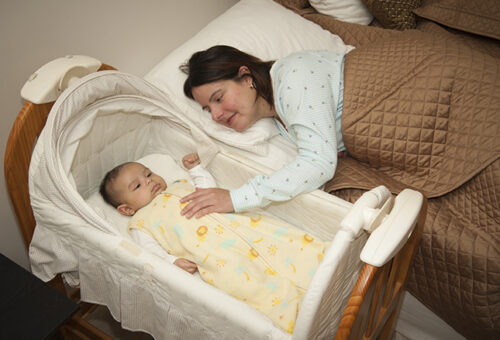Parenting: Four bad ages
Bad Ages Are Universal
“Pinch Points” in Raising Children
Parenting: Four bad ages
by Gregory A. Barrett, M.D.
For many years I have tantalized and amused families in my practice with the concept that there exist a quartet of really troublesome ages, each with its own distinctively foul flavor. The inspiration for this, of course, stems from observations of my own children. Now while it is true that being a parent is great and, yeah, children are wonderful, some times are definitely more fun than others. As a father myself I couldn’t help but take note of the fact that there are specific periods which are definitely a bit irksome.
Bad Ages Are Universal
Perhaps it’s because misery loves company, but parents of my patients seem to relish hearing that their children are in one of these phases. It may be helpful to know what they are going through is universal, that this is a stage which will eventually pass, and to understand better the dynamic creating the unpleasantness. I’m not sure why but for whatever reason this theory has proven to be quite popular. When I introduce my hypothesis parents often ask to be informed about the other bad ages yet to come so they can prepare themselves in advance, but I generally put them off by saying I don’t want to spoil the joy of their arrival. And then at some later visit the mom and/or dad will describe the troubles they are having with their child and inquire anxiously if this is the next bad age. When I acknowledge that indeed it is they will clap their hands and declare excitedly, “Yes! I knew it!!!”, kind of a three down, one to go sort of reaction. So, without further preamble, here they are for your consideration.
1: THE FIRST SIX WEEKS

The First Bad Age is the initial six weeks of life. Mothers and fathers receive their baptism of fire as a parent right out of the gate, and it is not fun. Many of you may nostalgically remember those days as being precious and wonderful and magical, but you would be mistaken. Can you recall the exhaustion, what it was like being up every three hours (if you were lucky) day and night? How about the gas, caring for the circumcision, the bleeding umbilical cord, spitting up, and the frustration of not being able to get him or her to burp? The pressure of being totally responsible for the well-being of such a weak and vulnerable infant? And the crying, having no idea what was wrong and nothing you did to try to console your baby seemed to help? And all of the above with no positive feedback to sustain your efforts? A newborn has only two ways to express themselves: they can cry or be quiet, neither of which is particularly rewarding. Newborns aren’t inherently mean or difficult, they are just tremendously needy. They don’t intend to be that way, they just are. But fortunately, about the time you begin to question whether or not you’re really cut out for this parenting thing, usually around the six-to-eight-week mark, two small miracles occur. First, the baby typically will begin to stretch out their sleep at night. That helps—a lot. And then they look up at you and they smile. This is so awesome it nearly takes your breath away. Life is good again. At least for a while…
2: THE TERRIBLE TWO’S

The Second Bad Age is the middle of the second year of life. I have always been curious about the term “The Terrible Two’s” and how that originated because two-year-olds are by and large adorable. They use words to express themselves, not raw emotion, and they’ve mastered the major gross motor skills so they can now putter around on their own and play. Two-year-olds are just basically a lot of fun. I have a theory that somebody said the terrible second year of life and a reporter got the quote wrong. But make no mistake, the terrible two’s are real, it’s just that they hit between fifteen and eighteen months. This is the age of “no,” temper tantrums, hitting, biting, kicking, and screaming. Absolutely delightful. I have long labeled the fifteen and eighteen month checkups the terrible twosome, events which typically degenerate immediately into ninety-five decibel wrestling contests. The vast majority of noise in a pediatrician’s office stems from children of this age being examined. The developmental tension here is derived from the transition between dependent baby and independent toddler, the child apparently unable to make up his or her mind from one moment to the next where they belong. In addition there is the frustration of what I call the Communication Gap. Lack of effective language leaves noisy, emotional outbursts as the only method of gaining attention to their wants or needs. But this phase does pass, usually over a period of three to six months, and they emerge on the other side as the prototypical cute little toddler.
3: THE FRUSTRATING FOUR’S

The Third Bad Age catches most parents by surprise. These are the four-year-old’s. Pediatricians even have a nickname for this—we call them “The Frustrating Four’s.” No one knows for sure what makes them so difficult but they are invariably an argumentative, difficult, and combustible lot. Every decision, no matter how minor, is contested. “You say yes, I say no, you say why, I say I don’t know, you say goodbye, I say hello…” were song lyrics obviously inspired by a four-year-old. Oppositional is the operative word. The four’s can drive you absolutely nuts. Most parents discover that they would rather deal with a temper tantrum than a whiner any day of the week. No one really understands why these kids act like they do and there is no easy trick for dealing with their behavior. One must simply bring out the big weapons. Cut off the inevitable arguments with ingenious phrases such as, “I’m your parent and I said so,” or, “Because I’m bigger than you and I can make you do it whether you like it or not,” or, “Just get in the car, Jenny, fasten your seat belt, and shut up.” Don’t get entangled in their wrangling, cut them off at the pass. Thankfully this miserable chapter only lasts about twelve months to be replaced by a truly magnificent age affectionately known as “The Fascinating Five’s.” Everything just gets better then and from that point forward parents will enjoy many years of relatively smooth sailing.
4: ADOLESCENCE

Unfortunately, all good things must come to an end. The Fourth (and final) Bad Age begins that fateful morning when your teenager walks down the stairs, notices you sitting at the breakfast table death-gripping your mug of coffee, and is struck with several simultaneous insights. He or she suddenly realizes with a brilliant clarity that you are both ignorant and an embarrassment, you have never truly understood them, your rules and regulations are outdated, ridiculous, and possibly even cruel, your core beliefs are all backwards and wrong, and that by comparison their trusted and valued peers are wise and all-knowing. Welcome to the Second Stage of Adolescence—the hard times are upon you. We parents all suffer through this one in varying degrees and it can persist for differing durations. For some it may only last a week (although that would be an exceedingly rare and miraculously fantastic occurrence) whereas for others their teen may get hung up in this stage and it could drag on for several years. But eventually this too shall pass to be replaced by the third and final stage of adolescence where your child will finally see you as you truly are – warts, flaws, and all – but will accept you anyway and recognize you as their anchor, the one thing in life upon which they can always count, a person who will always be there for them and offers that precious commodity called unconditional love.
So there you have it, my Four Bad Ages. The secret is out now. For new or future moms and dads this will give you a taste of what lies ahead. And to those of you who are veteran parents with older children, go ahead and admit it.
I’m right, aren’t I?
☤
Gregory A. Barrett, M.D.

Twice the recipient of the Kasmersky Award from the house-staff at the Ohio Children’s Hospital where he was on staff for outstanding teaching, pediatrician Gregory A Barrett was also named one of the Best Family Doctors in America by the Ladies Home Journal. His practice in in Ohio and authored “Real Pediatrics” a blog for parents since 2011.

